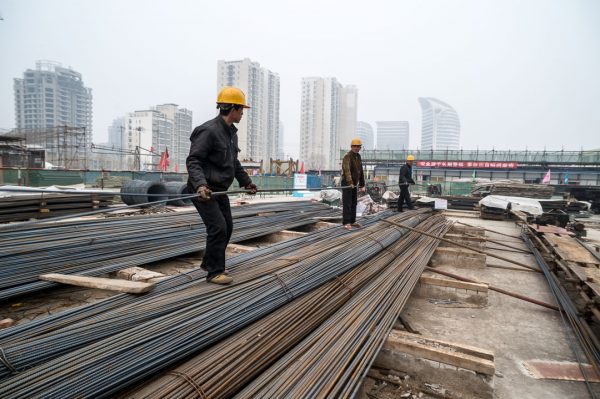The headlines out of China suggest there’s no denying the scale and robustness of activity on the anticorruption front. First there were the high-profile political slayings of ‘tigers’ such as Bo Xilai and Zhou Yongkang. At the same time, more than 200,000 ‘flies’, or lower level government officials, were swatted. Corrupt officials hiding overseas were then targeted in operation ‘Fox Hunt’. Next, President Xi moved on to tackling graft in state-owned enterprises. Now he’s taking on the military.
Putting a finger on Xi’s economic reform achievements has been harder. What disappoints many China-watchers (particularly those overseas) is that there haven’t been any big announcements on privatising state-owned enterprises (SOEs) and state-owned banks (SOBs). But China’s economic reform program hasn’t underwhelmed. Rather, it’s continuing to follow its own, highly successful, course.
Here’s another way of looking at it.
Xi’s anti-corruption drive shouldn’t be interpreted as just a political power play. There’s been a lot written about how the clampdown is hindering short-term economic growth: sales of luxury brands have slumped and restaurants and entertainment venues have lost their best customers. Government officials are reluctant to issue required approvals for fear they will be accused of extending favours. But, according to the World Economic Forum, corruption is still the second most problematic factor for doing business in China today. If China can weed out corruption, the economy will thrive in the long term.
Some commentators are also getting it wrong by confusing privatisation with economic reform. Economic reform is about raising productivity. The leap in living standards in China is proof that productivity has gone through the roof.
One of the great lessons to come out of China over the past three and a half decades is that privatisation isn’t crucial for boosting productivity — competition is. In 2014, eminent China-economy scholar Nicholas Lardy said that private firms now account for more than two thirds of output, up from nothing in 1978. In manufacturing, their share is four fifths. And in 2012, the World Bank reported that measures of monopoly power across China’s economy are low and declining. In fact, they are lower than in the US.
Even in a limited number of ‘pillar industries’ — where SOEs continue to dominate — the reformers in China’s government have gotten creative. In aviation and telecommunications, incumbents have been broken up and corporatised. Now, there is fierce competition between SOEs.
But what about in finance, that most stubborn of sectors?
In 2014, lending by the big SOBs increased by RMB4.4 trillion (US$705 billion). But total aggregate financing — the broadest measure of credit in the economy compiled by the central bank — swelled by RMB15.4 trillion (US$2.5 trillion). In other words, even those behemoth SOBs have become minority players.
That serves to make an important point. The critics are right that the SOBs are still there. But they’re wrong that they are a serious drain on productivity. SOBs now face more competition than ever before and simply don’t control the share of resources that they used too.
In early 2015, e-commerce giants Alibaba and Tencent launched themselves headfirst into becoming serious financial sector players. A Chinese banking regulator pilot program to establish privately-owned banks made this possible. The government’s support was on show when Premier Li himself launched Tencent’s new creation. He declared that part of its job was to ‘…[force] traditional financial institutions to accelerate reforms’.
Alibaba and Tencent are also going into the credit rating business. Again, that’s happened because the central bank opened up the credit reporting market to private firms. Premier Li’s work report earlier this month to the National People’s Congress didn’t mention privatisation at all. But it was full of references to relaxing market access for private participants.
That’s China’s economic reform agenda in a nutshell.
If you’re looking for SOEs and SOBs to be privatised in 2015, you’ll be disappointed. Better to put that to one side and look instead at China’s progress with competition and productivity.
James Laurenceson is Deputy Director of the Australia–China Relations Institute, University of Technology, Sydney.


This is an insightful article and suggests that our views about the complexities of what Xi Jinping is attempting to do is better informed by actually looking at what is being implemented rather than imposing a conventional analytical framework.
It may be what Xi is trying to do will not turn out well. But I think it better to take on his terms of reference for what he is doing rather than using conventional ones.